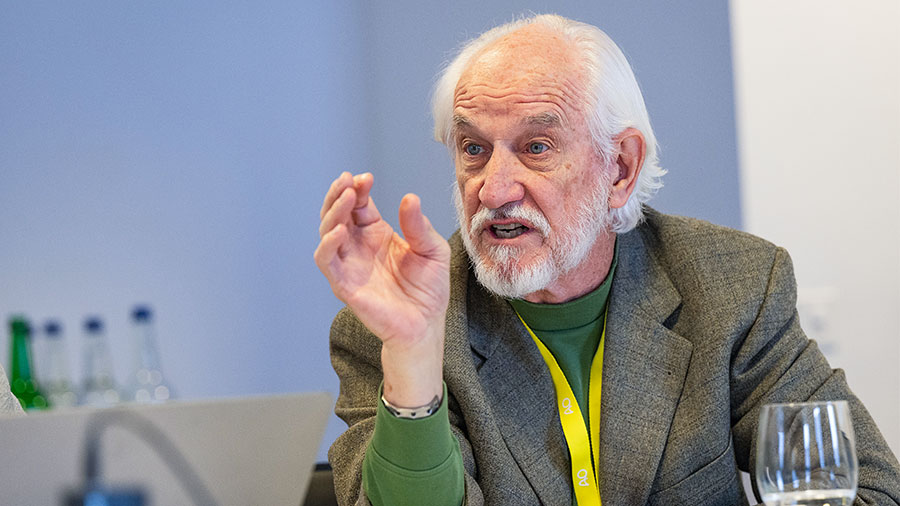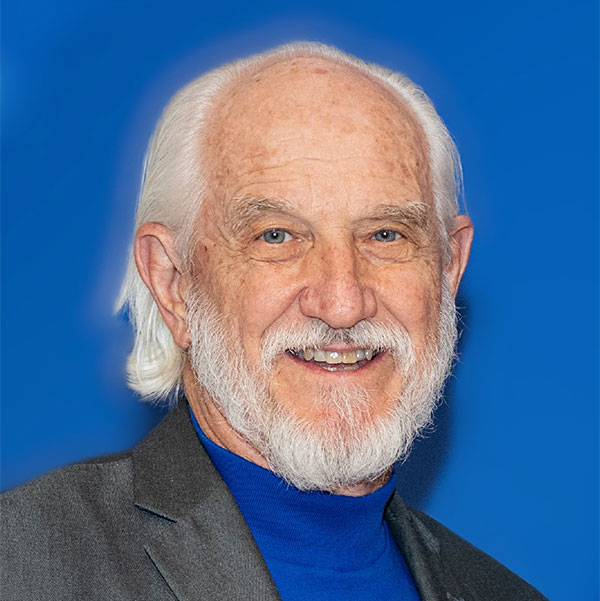Voices for change: Celebrating diversity within the AO

As a child growing up in rural North Alabama, United States, during the 1950s and 1960s, Robert (“Bob”) McGuire was unaware that his home state was the site of many pivotal events in the American civil rights movement. Today—60 years after integration of Alabama public schools began—McGuire is proud that the legacy of his AO presidency includes AO Access, an AO initiative firmly establishing diversity, inclusion, and mentorship within the organization.
McGuire, a spine surgeon who currently works as an emeritus professor for the University of Mississippi Medical Center in Jackson, Mississippi, United States, was AO President from 2018 to 2021 and represented the AO Foundation Board (AO FB) on the AO Access Steering Committee until June 2023.
“I grew up during the segregation period of the US South, and I would have to wait until school was out to go play sports with my African American friends because they attended a different school,” McGuire said. “I was in the seventh grade when desegregation occurred, which was great for me because it meant we were all attending the same school.”
In Guin, Alabama, the small town where McGuire grew up, the battles typically associated with the civil rights movement were unheard of.
‘You need to respect people’
“You hear of all the bad things that happened during that period—school uprisings, for example—during desegregation, but we didn’t have any of that. It was totally foreign to me,” McGuire said, citing his parents as excellent role models when it came to treating others with respect. “My dad was a pharmacist who had a small drugstore, and I remember watching him when he was working: He treated everyone equally. That was really important to me, learning that we’re basically all the same. That’s the way I’ve always tried to live my life: You need to respect people even though they may be totally different from you; their ideas and opinions are important, and you need to pay attention to that.”
Though his father was a pharmacist, it was not assumed McGuire would follow in his footsteps. In fact, he wanted to become an astronaut.
“I remember sitting in our front yard in 1957 when the Russians launched Sputnik I, the first artificial satellite. We didn’t have any light pollution where we lived, so every night this satellite would come across the sky and we could stand right in the yard and watch it move across the heavens,” said McGuire. “Especially after the first manned space launches, I said, ‘That’s really what I want to do.’”
So, he began his college career with the ambition of becoming an aeronautical engineer—a trajectory that was halted by a guest speaker who announced, “We’ve got all of the aeronautical engineers that we need. Y’all are probably going to have a hard time finding a job.”
By chance, one of McGuire’s fraternity brothers suggested he major in premed.
“I thought, ‘I’ll just go back to North Alabama and be a family doctor,” McGuire said.

“We want to be a diverse organization that really mirrors our membership.”
Robert Mc Guire
The importance of opening doors
At the University of Mississippi, McGuire met AO member Jim Hughes, who was department chairperson at the time and integral in establishing AO North America.
“He really opened a lot of doors for me with the AO and I’m truly indebted to him because I don’t think I would have been able to move into this organization had it not been for him. For example, when I was still in the United States Navy, he said, ‘Look, I’ve got you a scholarship to go to the AO Davos Courses in December,’” said McGuire, underscoring the importance of mentorship and sponsorship—key components of the three-pathway AO Access Journey. “Access is at the heart of AO Access—and the whole reason we decided to call it AO Access. Access is the crux of what we’re trying to do: identifying upcoming surgeons who are going to be taking AO leadership roles in the future, establishing a level playing field, and giving people equal access to the AO.”
While McGuire is proud of his role in formally establishing the AO Access initiative during his term as AO President, he is quick to point out that fellow AO Access Steering Committee members Amy Kapatkin and Jaime Quintero, and early AO Opportunity, Diversity, and Inclusion (ODI) Working Group members Samantha Morello, Matthew Allen, Tatjana Topalovic—as well as other surgeons across the AO—had previously voiced their support for a program to help nurture up-and-coming surgeons. He said AO Access educational modules—digitally accessible from anywhere in the world—fit neatly into the AO’s commitment to offering learners relevant educational content on demand.
‘This is a mandate’
From its start in 2020, AO Access has moved full steam ahead with an open call to recruit task force members and those task forces’ behind-the-scenes work to challenge existing practices in terms of how faculty are selected and how candidates for leadership roles are recruited.
“Of course, you want change to happen overnight, but this is not something that happens overnight. One of the things we have been able to do, with the support of the AO FB is challenge the Nomination Committees in all of the AO regions, telling them, ‘You have to look at all aspects—gender, ethnicity, age, for example—when recommending people for vacant governance positions.’ This is a mandate,” he explained. “We want to be a diverse organization that really mirrors our membership.”
McGuire said he relishes the thought of a future AO that looks very different from today’s organization.

“Life is hard. It’s not fair. It absolutely was not set up to be fair. Don’t get your feelings hurt when and if you hit barriers. Treat barriers as opportunities.”
Robert Mc Guire
‘Keep moving forward’
“It may take ten or 12 years, but I believe what AO Access is doing now will make a big difference,” he said. “If you look at photos of the AO FB over the years, it was mainly older, white-haired gentlemen. We have been able to change that. If you look at the AO FB today, we now have women members and they are doing an outstanding job,” he said. “For me it’s been a true pleasure to see the changes that have taken place over a very short timeframe. We’re making inroads, but it’s going to take time.”
Resistance, McGuire said, has been part of the change process he announced at the AO Trustees Meeting 2019 in Dublin, Ireland. At that meeting, McGuire focused on change and how the AO can continue to rise to challenges in an ever-more complex health care environment, on preserving long-standing AO traditions such as mentorship, and on the value of diversity.
“I got some backlash but that didn’t bother me. I fully expected it. You have to respect those opinions, but you also have to keep moving forward,” he noted. “I was fortunate to have the AO FB fully embracing these changes. One of my big pushes has been for women in surgery, because although there are a lot of women spine surgeons and they do unbelievably good work, they are not in AO leadership positions. So, with our industrial partner, DePuy Synthes, we have conducted sessions in Latin America and North America. The rooms have been packed; people are very interested in bringing diversity, inclusion, and mentorship to life across the AO.”
McGuire has sobering—but simple—advice to science, engineering, mathematics, and medical students encountering barriers to achieving their goals.
“Life is hard. It’s not fair. It absolutely was not set up to be fair. Don’t get your feelings hurt when and if you hit barriers. Treat barriers as opportunities and that will allow you to find the appropriate solution,” he said. “Leave your comfort zone as often as you can, and—by all means—keep moving forward. I tell everyone, ‘The reason your automobile windshield is so much bigger than your rearview mirror is because all the opportunities are in front of you, not behind you.’”
You might also be interested in:
- Reading the complete voices for change series
- Joining the AO Access Mentorship Program
- Listening to the AO Access to success podcast

